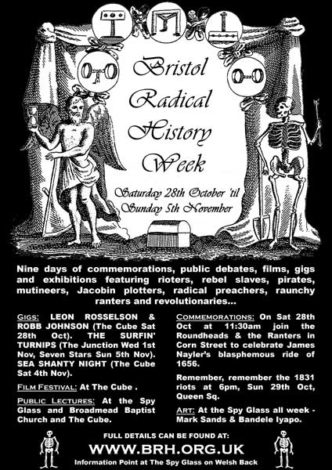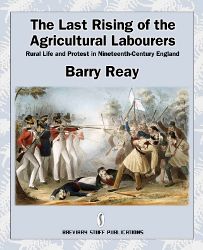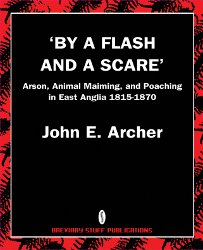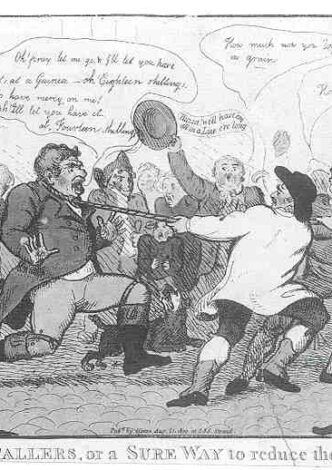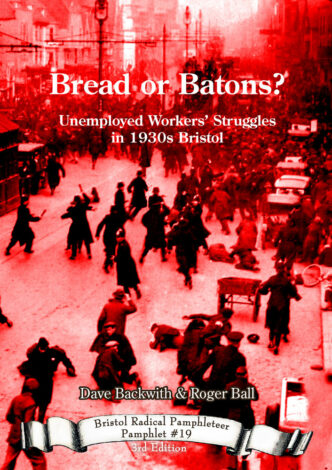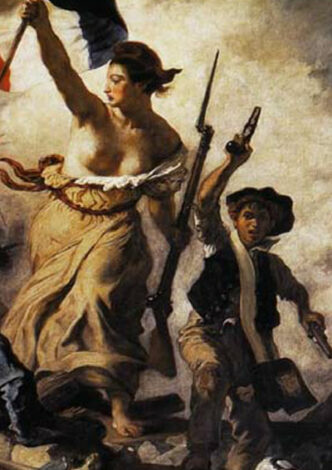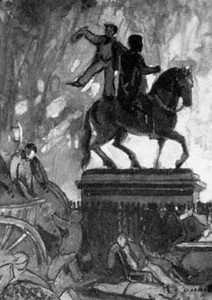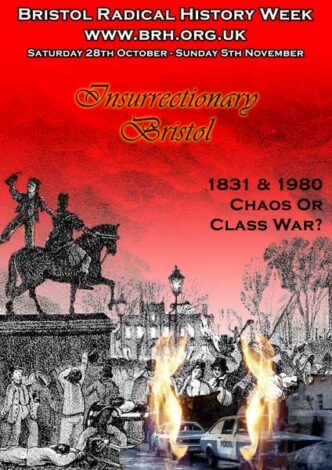Britain in 1831… a tinder box? The Reform Act and suffrage The events of October in Bristol The trials and punishments Was it chaos, protest or class war? The wider political implications Why we should commemorate 1831 Listent to this talk: Downlaod to this talk (1.5 Mb mp3 file)
The Hernhill Rising of 1838 was the last battle fought on English soil, the last revolt against the New Poor Law, and England’s last millenarian rising. The bloody ‘Battle of Bosenden Wood’, fought in a corner of rural Kent, was the culmination of a revolt led by the self-styled ‘Sir William Courtenay’. It was also, despite the greater fame of the 1830 Swing Riots, the last rising of the agricultural labourers. Barry Reay provides us with the first comprehensive and scholarly analysis of the […]
‘By a Flash and a Scare’ illuminates the darker side of rural life in the nineteenth century. Flashpoints such as the Swing riots, Tolpuddle, and the New Poor Law riots have long attracted the attention of historians, but here John E. Archer focuses on the persistent war waged in the countryside during the 1800s, analysing the prevailing climate of unrest, discontent, and desperation. In this detailed and scholarly study, based on intensive research among the local records of Norfolk and […]
Available as a PDF file here. This paper is famous, so I thought I better read it and I was not disappointed. Thompson is at his cheeky best, starting the article by taking the piss out of anthropologists and their complex analyses of 'exotic' cultures whilst the English working class is reduced to disorganised, amoral, sub-humans by historians. Thompson analyses the corn and bread 'riots' of the 18th century and not only shows their popular character but also the organised and often successful […]
The banking crisis of 2008 and the following deep recession experienced by the world economy have led to mass unemployment and poverty in the U.K. Massive public sector cuts along with huge financial bonuses for the wealthy have exacerbated the systemic divisions between ‘rich and poor’ which lie at the heart of the neo-liberal economy. For many commentators the spectre of economic depression has raised its ugly head once again. It thus seems apt to look back at Bristol in the period of the last […]
These are the slides from Roger Balls' talk at Bristol Anarchits Bookfair 2009. Download the pdf file here.
 The Southmead Riots
The Southmead Riots
April of 2005 saw the 25th anniversary of the St Paul's riots, a day and night in 1980 that not only was the precursor for further riots in London and Liverpool but the catalyst also that sparked changes that are still reverberating to this day. As Paul Stephenson, the former regional executive officer for the Commission for Racial Equality has commented: 'The riots were a wake up call for the country'. To mark the occasion, a two-page article appeared in The Bristol Evening Post featuring the […]
This article was written for Mute Magazine. One of the objectives of Bristol Radical History week was to re-examine some of the momentous events of Bristol’s history that have been often dismissed by historians as ‘chaos’ or ‘inexplicable’. The process of this examination by academics, local historians and interested punters during the week exposed some of the key problems of historical analysis. Precision Strikes The three days of rioting that occurred in October 1831 in Bristol were certainly […]
Taken from Bristol Past and Present by J. F. Nicholls and John Taylor, published in 1882 Major Beckwith, in his evidence, stated that the mayor and magistrates seemed stupefied with terror, and that he asked for one of them to accompany his troops on horseback; all but Alderman Camplin said they could not ride, and he said he had not been on horseback for eighteen years. The major then demanded and received a written authority from them to act. The following is a list of the leading members of […]
The 1831 Uprising - Part 2: The Uprising Taken from Bristol Past and Present by J. F. Nicholls and John Taylor, published in 1882 On Saturday, October 29th, the civic force appointed as a guard for the recorder, marched out, about ten o'clock in the morning, by way of Bristol bridge and Temple street, as far as the city boundary at the “Blue Bowl” tavern, Totterdown, to await his coming. They mustered about 300, and included the sheriff's officers, regular constables, and special constables; the […]
